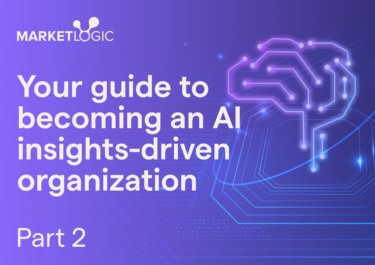
December 12, 2017
Read time: 2min

December 12, 2017
Read time: 2min
“In the past, concept tests were always seen as disposable – ‘okay, this concept didn’t work, so let’s get rid of it and move on to something else.’ Five years later, a new brand manager proposes what they think is a ‘new’ concept without knowing it was discarded in the past. Even worse, there’s no way anyone would know why it was discarded.” – Maria Gomez Soler, Newell Brands.
Does this sound like a familiar problem? All too often, we hear of concept tests and their insights getting discarded instead of being re-used to inform future decisions. If a concept was tested over three years ago, there’s no guarantee that anyone who tested it will still be at the company; and even if they are, will they still be in a position to hear about this upcoming test? Will they know where the old results are? It’s unlikely.
That’s why companies need a way to save their concept tests and compare them against each other. Whether a concept was a success, a mediocre attempt, or a miserable failure, there’s always something to learn from it.
Concept tests are all about what happens next:
Market Logic’s clients use innovation libraries to trawl past concept tests. They find inspiration by quickly sourcing valuable insights from past ideas, which in turn reduces duplication of research. These tests also help them to focus in and refine ideas to find the strongest possible concept.
For example, a marketer can ask, “what concepts did we explore about creativity and school holidays?” and instantly see every concept tested on that topic. Search results show the type of concept (product or pack and so on), theme, a one-liner that appeared on the board, and actual KPIs. These KPIs are displayed on a custom-built board and are tailored to each client’s individual needs.
Marketers click on the concept board to review learnings. Feedback is immediately available to explain the subtext and help you improve when you try something similar. Without these libraries, that feedback that would typically be discarded.
At Newell Brands, Maria sees a remarkable difference with her concept library:
“Now we have a repository where we can see results from every single concept test. We know when a concept works or doesn’t. If it doesn’t, we try gather all the learnings from it to guide future ideation. If it does work, we make sure we know what made it successful and apply those learnings to future processes. Many times we go back to the original concept and learn more. It’s really helpful because we can see there’s a lot to be learned from concepts, even those that failed.”
Knowledge is power, but the right knowledge is invaluable. Leveraging research that’s already been conducted allows for large savings and better concept testing organization. With concept libraries, you get an inspirational search experience that teaches from past successes and failures to improve innovation success rates.

How is AI transforming roles, skills and capabilities in insights functions?

Interview with Nextatlas CEO Luca Morena

An introduction to gen AI for businesses. From RAG to LLMs — get the lowdown.

Exploring the Future of AI in Marketing: Integrating Insights into Business Systems for Enhanced Decision-Making.

To succeed in today's dynamic consumer landscape, your organization must be able to react faster…

How does this guide help you? In part 3 of our guide, we’ll delve into…

Learn the AI insights-powered enterprise systems architecture and processes.

Transform your organization with insights. Download this guide to find out how.